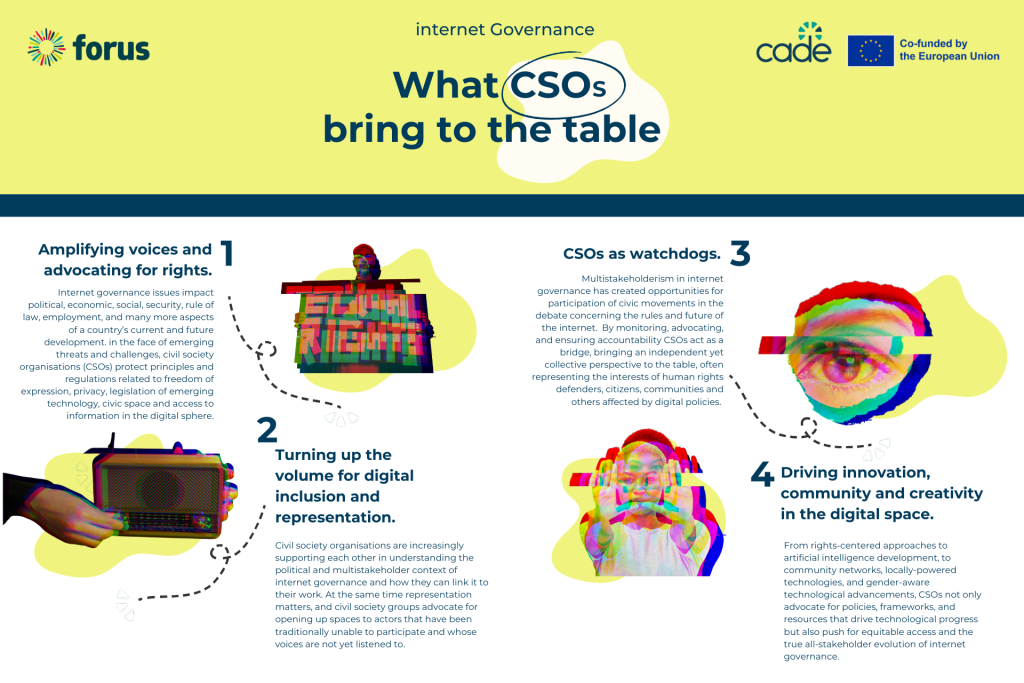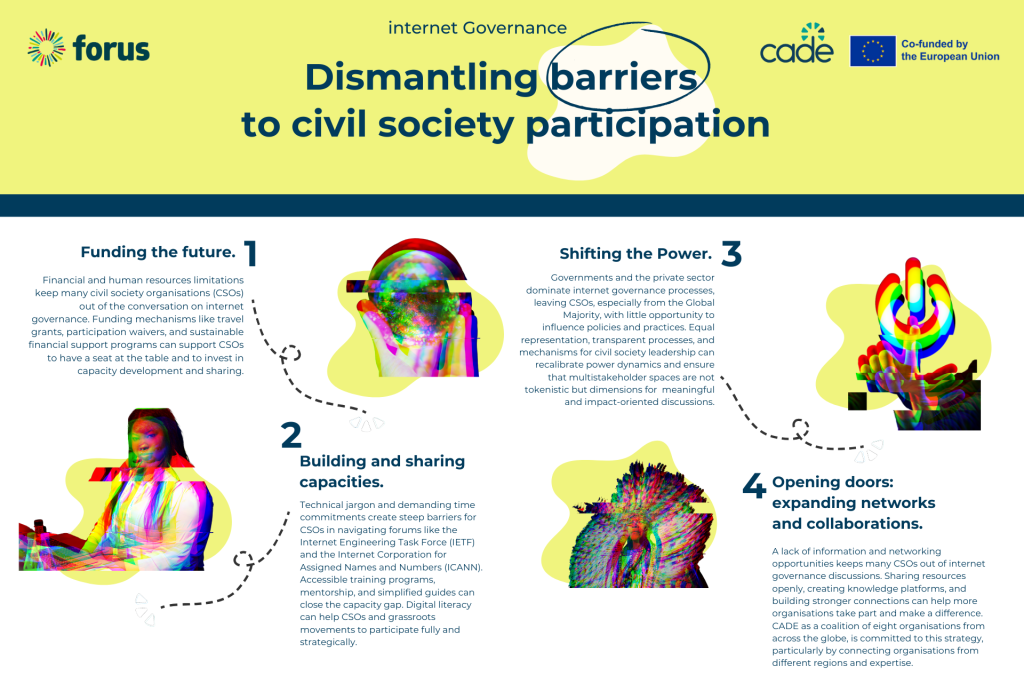CADE conducted a comprehensive mapping and baseline study on CSO engagement in internet governance processes. Download your copy below in English, French, Spanish, or Portuguese and explore how CSOs can influence digital policy, with a focus on emerging technologies.
Download your copy
CADE Digital Futures podcast
Listen to the CADE Digital Futures podcast series of ten multilingual episodes on how to make digital governance more inclusive and rights-focused.
Closing the gap – Turning words into action
Let’s close the gap between CSO engagement and our potential influence in internet governance by enhancing our role in policymaking, providing actionable recommendations for stakeholders to better integrate CSOs, and adopting innovative approaches and best practices to strengthen our impact on digital governance frameworks.

The road ahead – CSO engagement in internet governance spaces
The CADE study explores the specific mechanisms and modalities through which CSOs engage in these internet governance processes, highlighting not only the challenges, but also the opportunities and successes associated with participation in different forums.



